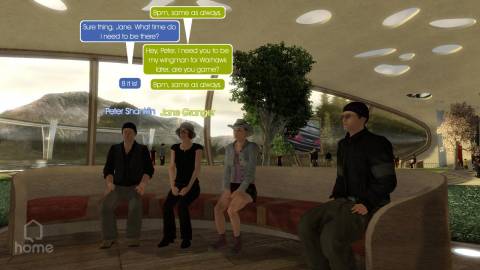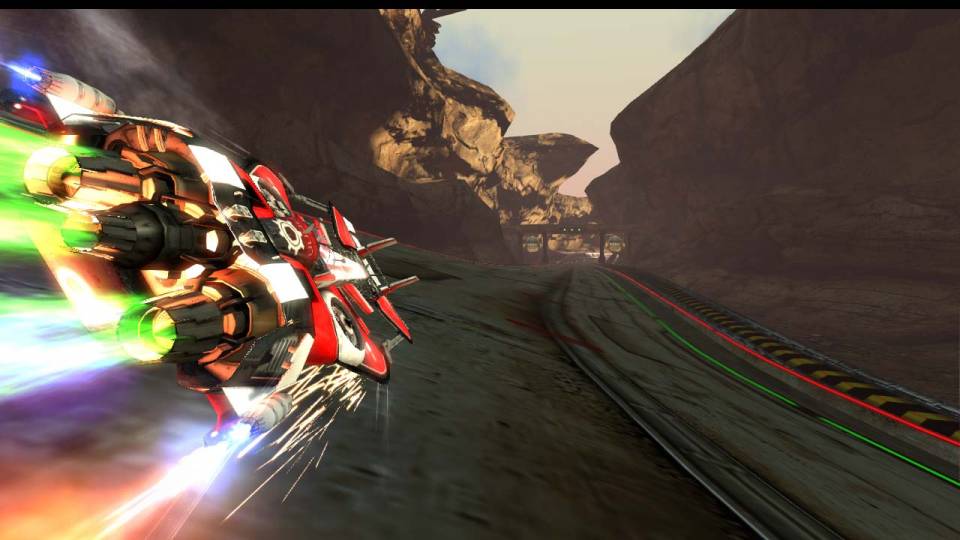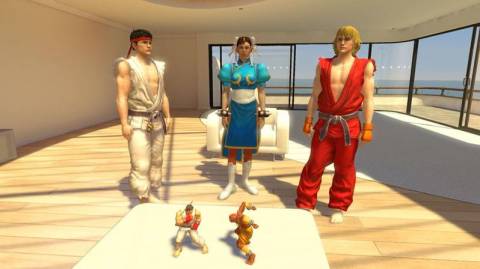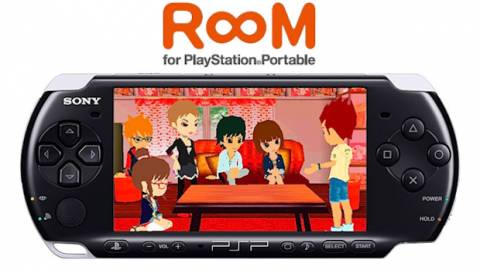
As the director of Home, it's not a surprise that Jack Buser is also its most enthusiastic cheerleader. I've seen Buser talk about Home before--he genuinely loves it.
The general message I've heard from Sony employees is "hey, you don't use Home, but it makes money," and as my story from yesterday pointed out, it's not only an easy money maker for the company; there are legions of users deeply passionate about Home.
We touched on a wide spectrum of Home topics, including the bumpy early days that alienated a bunch of people, questions over the realistic art style, whether Home will ever appear on a portable, and if the whole point is to make money, how much money is Sony making? (Spoiler: he gets really gun-shy about that part.)
The first thing you realize about Buser is that he loves numbers. He starts our conversation by rattling off a bunch of data about user engagement. That he used the term "user engagement" already tells you something. There are over 20 million registered accounts participating in Home, compared to PlayStation Network's total of 77 million users. Buser won't say how many daily active users, but the average session time for someone is 70 minutes.
Home, which remains in perpetual beta (we'll get to that later), largely works because it's free, he argued.
"[Being free] allows users to have very few barriers to themselves and actually coming into Home," said Buser. "You have different kinds of users. You have users who are spending a tremendous amount of time on the platform, literally spending their lives inside of PlayStation Home. You have other users that are using PlayStation Home as something that they do between games. They'll have a big game they bought, they beat the game or otherwise get tired of the game, so what do they do with their console between that and the next time they buy a game? They use PlayStation Home."
When I started researching this second set of articles, I wanted to gain a sense of Home's demographics. That's been incredibly hard to nail down, as Home fan sites are all over the place. I did have a theory, though, that Home users were not the primary gamers in a household. Instead, it was the brother, sister or mother not really into games.

While Buser admitted Home has all kinds of users, he told me my theory isn't really true.
"If you look at the average Home user, they are the most hardcore gamer on the PS3," he said. "They buy more games than the average PS3 user, they play more games than the average PS3 user. They also watch more movies than the average PS3 user, who is already a highly self-selective consumer. We're talking about rabid consumers of media and hardcore gamers. That's who these people are."
Point taken.

Yesterday's piece was meant to provide a window into the people who are already engaged with Home. There are likely millions who turned Home on the day it launched back in December 2008, realized there was nothing to do but purchase t-shirts and sit on the floor...then tuned out. Heck, I was one of them. Before writing a few stories on Home for G4, the last time I'd turned Home on was the same day it started.
"We would be remiss to ignore the people on PlayStation who may have come in 2008 and walked into Home and said 'yeah, there's nothing here and left' and formed their opinion," said Buser. "We would love to see those people come back in. But I get it. If you come into a platform and there's nothing there for you, you're going to be hesitant to come back. That's why we're very focused on this idea of games, because if it's a great game, why not come back in and play it?"
To that end, while the Home team has spent much of its time building up fan-focused features like the Community Theater, there's been a highly concentrated effort to produce more content in the form of serious games.
"We made one fatal mistake in those early days," said Buser. "You put a bunch of gamers together in a room and you tell them to talk to one another and they don't do it. This is the 20/20 hindsight part. It seems obvious in retrospect, but it wasn't obvious back in 2008. We thought 'here, we'll build these rooms and we'll fill them with gamers and we'll theme these rooms after games and then people will self-select and talk to each other.' What we discovered very early on, even in closed beta...we realized that gamers talk to each other and they meet each other in the context of playing games."
There are about 200 games within Home right now, but many aren't worth your time. Did you know The Misadventures of P.B. Winterbottom developers The Odd Gentlemen produced a game exclusively for Home? Me either! Sodium 2, however, is the high-profile recent addition to Home, billed as something closer to a racer you'd find on PlayStation Network or on a disc. It's certainly better, but you won't be ditching your traditional games.
Perhaps more than anything else, the most blunt criticism against Home is simply the way it looks. The realistic style is...well, have you seen those Street Fighter avatars? There's just something off-putting about them. Buser mostly dodged that critique, pointing towards the 9,000 virtual items available, some of them complete replacements of the default avatar. He tried to position the style as an advantage.

"Let's just say for a moment we wanted to launch an FPS [in Home]," he said. "We could do that in a way where you could maintain your identity and still have some sort of believability in that kind of experience, as opposed to being a super cartoony looking character. I think the realism of the avatars is one of our huge advantages, especially now that we're focused on providing a robust game platform with the service."
Even though Home fans I talked to rarely brought up games, it's what Buser returns to over and over again, essentially his catch-all defense against questions about users not interested in Home. If he builds enough proper games into Home, Buser believes people will stop by and check Home out. The theory is not without merit, but the problem remains building a game compelling enough to rope people in.
Perhaps more important than anything else, though, is that Home makes money for Sony. Unfortunately, Buser would not budge on disclosing any specifics. Even when asked in especially vague terms, such as whether Home's profits had managed to offset the years of research and development that went into the project, he side-stepped.
"We don't comment on exact revenue for PlayStation Home," he said. "PlayStation Home is heavily reliant on the microtransactions business model. Microtransactions tend to be profitable due to the low cost of virtual item development and the high traffic on the platform."

There was a point when Home was going to be on PSP, too, called "Room." Revealed at Tokyo Game Show, it was never released, and quietly shelved without much fanfare. Buser would not comment on whether the Room concept would return for Vita.
He was also coy about the beta tag attached to Home. Buser made the argument that having "beta" attached to Home helps underscore its design philosophy. He refused to provide any specifics on if "beta" would ever be lifted. Maybe closer to Home 2.0? The service hit the 1.5 milestone this past spring.
"We're in open beta," he said. "We don't talk much about it. The reason why the tag is there is because we really want to drive home this message that Home is always evolving, it's always changing, that we're always working on it. [...] We don't have anything to announce at this time, but we do like the idea that that tag reinforces this always evolving message. But I can't say more than that."
The point of these stories wasn't really about convincing anyone they should suddenly care about Home. Yours truly doesn't even really care! This was all to provide a look into why some people do care, and Sony's approach to appeasing the already happy audience, while trying to pull in the other people who've outright dismissed it.
Maybe games are the key, maybe it's too late.
Now, the question is when I'll decide to boot up Home again. Any bets?